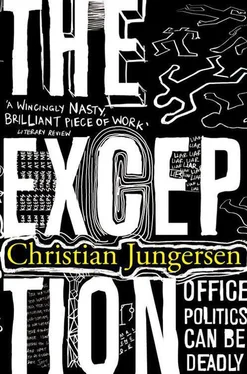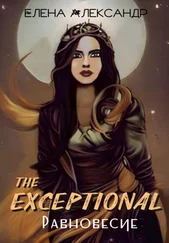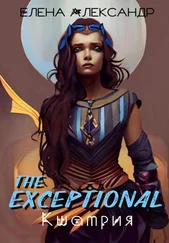Christian Jungersen - The Exception
Здесь есть возможность читать онлайн «Christian Jungersen - The Exception» весь текст электронной книги совершенно бесплатно (целиком полную версию без сокращений). В некоторых случаях можно слушать аудио, скачать через торрент в формате fb2 и присутствует краткое содержание. Год выпуска: 2010, Издательство: Orion Books, Жанр: Современная проза, Триллер, на английском языке. Описание произведения, (предисловие) а так же отзывы посетителей доступны на портале библиотеки ЛибКат.
- Название:The Exception
- Автор:
- Издательство:Orion Books
- Жанр:
- Год:2010
- ISBN:нет данных
- Рейтинг книги:3 / 5. Голосов: 1
-
Избранное:Добавить в избранное
- Отзывы:
-
Ваша оценка:
- 60
- 1
- 2
- 3
- 4
- 5
The Exception: краткое содержание, описание и аннотация
Предлагаем к чтению аннотацию, описание, краткое содержание или предисловие (зависит от того, что написал сам автор книги «The Exception»). Если вы не нашли необходимую информацию о книге — напишите в комментариях, мы постараемся отыскать её.
The Exception — читать онлайн бесплатно полную книгу (весь текст) целиком
Ниже представлен текст книги, разбитый по страницам. Система сохранения места последней прочитанной страницы, позволяет с удобством читать онлайн бесплатно книгу «The Exception», без необходимости каждый раз заново искать на чём Вы остановились. Поставьте закладку, и сможете в любой момент перейти на страницу, на которой закончили чтение.
Интервал:
Закладка:
Malene gives her a puzzled look.
Iben answers her question before she’s even asked it. ‘I calculated a ballpark figure like this: one million in Rwanda, and about the same number in Sudan and Cambodia. At least five million in China, and three million in Russia. Then pool all the rest.’
Iben turns to Camilla. ‘Something happens, changes, inside most men in wartime. Did you read the three reports on genocide in Bosnia by Stjernfelt that appeared in The Week , a few years ago?’
‘No. I didn’t.’
‘Basically, it was the same story over and over again. A woman meets a nice man, her family likes him, and she feels safe with him. She has no inkling about the dark side to his character; neither has he. Probably. Anyway, no one would have guessed what he was capable of. Then the war begins.’
Anne-Lise had often thought that Iben, rather than Malene, should be the one who did lecture tours. Iben always became so absorbed in what she was saying.
‘Then, one morning, his wife gets out of bed only to find him gone. Maybe there’s a note telling her that he has gone to join some obscure military unit or other. If she’s lucky, he will return to her and the children. It could take a few years, or just a few months. By then she will have heard that he has been shooting at civilians or herding people in front of execution squads or torturing prisoners. He might well have raped women and then killed them, or robbed houses and burnt them down. But there he is, back home, ready to pick up his normal life where he left off.’
‘Then what happens?’
‘I’ve written about it many times. For instance, in the Zigic article. Some men simply shrug the whole experience off. “That was during the war,” they’ll say and settle into peacetime life as if rape and murder couldn’t be farther from their minds. Others never let go of the past. They’ve changed.’
‘Are you saying that all men have a kind of war button? Like, you press it and they start murdering?’
‘Put that way — yes, I do. Not all, but most men. It’s a fact. If you don’t believe me, just check out our library. Isn’t that so, Malene?’
‘Yes, it is.’
Camilla is silent, but looks distressed at the turn their conversation is taking.
Iben is still fired up. She takes a slice of chorizo from one of the boxes and squeezes the plastic lid back on.
‘I’ll tell you a story. When I was little, we had this dog, an Alsatian called Max. All the children in the street liked playing with Max and at times it can’t have been much fun for him. We’d pull his tail or poke him in the eye by mistake, or stick our fingers into his mouth, but he put up with it. Max had been with us for years when we took him for a long walk one day. We let him off the lead because we knew he always came when we called.’ She hesitates.
‘Anyway, that day we set out to walk in a nearby stretch of woodland. Suddenly Max was off. Calling him had no effect. When my father finally found him it was in the much larger adjacent wood. Max had killed a young deer and was wild with excitement. There was blood all over his head. He had never seen a deer before in his life, but he knew what to do. He had run the animal down and leapt straight for its throat.’
Camilla listens, her mouth hanging open.
‘We spoke to the vet about what had happened and he said that Max was dangerous now that he had experienced bloodlust. Hunting and killing had changed him. In a way, he had become another dog. We realised that we were more to blame than he was, but there was nothing else we could do. My mum and dad had to ask the vet to put Max down. All the kids in the street cried.’
Iben and Malene exchange a quick glance. Anne-Lise realises that Malene has heard all this before. After the break she and Iben will go into the kitchen or the copier room to talk privately.
Camilla has pushed her plate away. She looks at Iben. ‘So what you’re saying is that men are like the dog in your story?’
Malene leans forward over the table. ‘Iben thinks that we’re all a little like animals, don’t you, Iben?’
‘In some ways, yes, I think we are. We should have known better and not let Max run free in the woods. It was instinct — he couldn’t help himself.’
There is something about all this that appears to make Camilla more excited than Anne-Lise has ever seen her before. She has dropped the charming voice she uses on the telephone. ‘So you think Mirko Zigic is one of these men. We’re to feel sorry for him, because he’s got this instinct for … say, hanging people upside down from branches?’
‘He’s a frightening man, regardless of his motivation. Just like Max became a frightening dog, particularly around children.’
Anne-Lise enters the exchange for the first time. ‘If there’s something in men that makes them all potential murderers, then is it present in women too?’
Iben replies: ‘It might be … but you never read about all-female militias rampaging through the countryside, killing and looting and burning everything to the ground.’
Camilla grasps a fork in her hands as if she’s trying to bend it. ‘In a way it sounds to me as if you are defending the man who has threatened to kill you. Or all of us.’
‘All I’m saying is that these men are victims of war as well. War reveals something inside them that normally would have gone undiscovered. When the war ends, they’re probably just as shaken as the survivors. In shock, if you like, wondering “What happened? What did I do?”’
Camilla quickly looks round the group. ‘Well, it doesn’t make sense to me to compare the suffering of the executioner with the suffering of the people he has killed.’
Malene sighs demonstratively. ‘Here we go. Back to the familiar old debate: “How much of human behaviour is due to instinct and how much to free will?”’
Iben snaps at Malene: ‘Old debate it might be, but I can’t recall us ever talking about it.’
Malene seems confused.
‘From a purely ethical point of view it’s important to hang on to what the victims have a right to demand … Oh, forget it; I don’t know where this is going.’
All three have a new edginess to their voices. Is it fear of Mirko Zigic that has caused this tension? Whatever it is, they are different. Wilder.
Anne-Lise feels like retreating to the library. She senses that in a moment one of them could lose control and every chance of reconciliation between them would be lost.
Camilla puts the fork down. ‘What I’m hearing, Iben, is that you feel that everyone is a victim — rapists, the lot.’
‘I suppose I do.’
‘And a man who rapes in peacetime — what about him? His basic instincts are getting the better of him too, right?’
‘All I’m saying is that I’ve been surprised by how many men seem to have this built-in tendency — something that’s normally suppressed.’
‘And that means that we should pity them, does it? — be supportive and offer them therapy sessions because they’ve nobody to talk to about the women they’ve raped?’ Camilla’s usually gentle voice is tinged with anger. ‘We’re talking about men who might kill us!’
‘Let’s not talk about them then.’
Malene speaks quietly. ‘Iben wants to understand every point of view, regardless of whose it is.’
Silence.
‘Iben thinks that Zigic has gone underground some place, maybe here in Copenhagen, and is agonising away. You know, like … “I’ve raped my friends’ wives and daughters. I’ve painted the Serbian eagle on the walls of their houses using body-parts dipped in their blood as my brush — but hey! Does that make me a bad human being?”’
Malene starts to laugh at her own irony, but nobody is smiling. ‘He would be utterly … disoriented.’
Читать дальшеИнтервал:
Закладка:
Похожие книги на «The Exception»
Представляем Вашему вниманию похожие книги на «The Exception» списком для выбора. Мы отобрали схожую по названию и смыслу литературу в надежде предоставить читателям больше вариантов отыскать новые, интересные, ещё непрочитанные произведения.
Обсуждение, отзывы о книге «The Exception» и просто собственные мнения читателей. Оставьте ваши комментарии, напишите, что Вы думаете о произведении, его смысле или главных героях. Укажите что конкретно понравилось, а что нет, и почему Вы так считаете.












